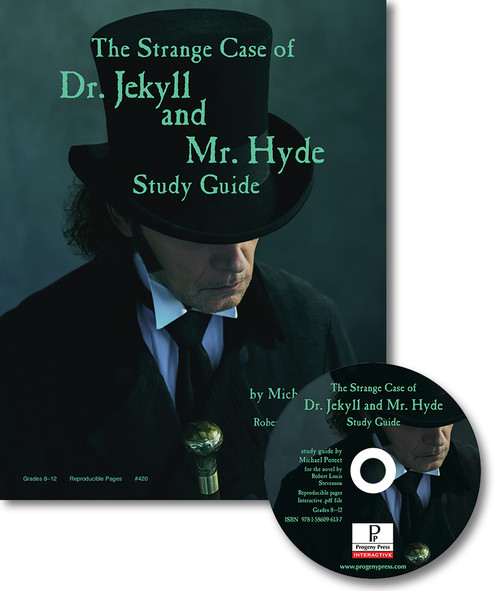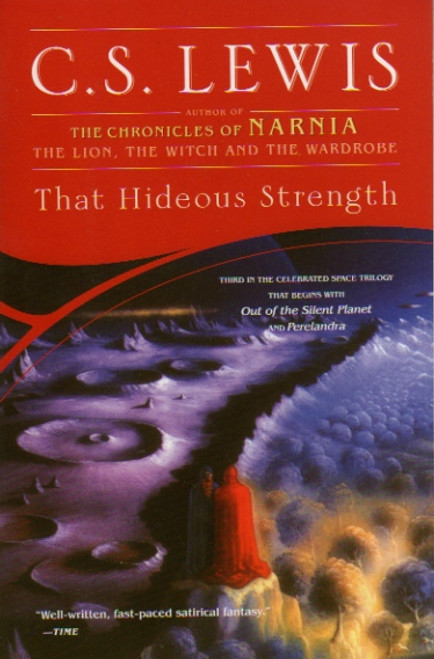Description
Forget Boris Karloff! The real story is scarier because it examines real, human desires and capabilities.
A brilliant student, Victor Frankenstein, comes upon the knowledge of creating life. Expecting glory and hoping to benefit humanity, Frankenstein creates a man - only to discover that creation carries more consequences and responsibilities than he foresaw. The resulting tragedy speaks directly to some of the issues facing us in science and medicine today.
Years later, Robert Walton is a young man driven by his desire for knowledge and exploration - he wants to make his mark on the world. But he finds something entirely different. As the sea ice closes in on his ship, he and his crew sight a strange, gigantic being driving a dogsled across the frozen wasteland, finally disappearing into the distance. The next day they find an ill and dying man floating on a fragment of ice and persuade him to come on board for his safety. As his ship lies trapped by the surrounding ice, Walton spends many hours talking with the ill man, a Victor Frankenstein of Geneva. As they talk, Frankenstein slowly reveals his story to Walton.
Progeny Press Frankenstein English/Language Arts curriculum will provide your High School grade student with:
English/Language Arts credit: This is a one-quarter credit high school level Literature curriculum.
Author Biography: Learn more about Mary Shelley.
Background Information: Early 1800s history of science, discoveries, literary movements, and politics.
Before-You-Read Activities: Faust, poem, mapping, research, Bible study.
Vocabulary: Understand words used throughout the novel, utilizing a variety of activities to stimulate retention and growth.
Literary Techniques: In context, dictionary, characterization, framing, setting, mood, allusion, parallel character, foreshadowing, adjectives, Gothic novel, romantic novel, tone, irony, verisimilitude, compare/contrast, metaphor, narrator, protagonist, antagonist, conflict, climax, paradox, contrivance, theme.
Moral Lessons and Character Values: Motivation, hubris/pride, friendship, death, guilt/sin, human goodness, responsibility for our actions, revenge, man's nature, purpose, responsibility, God and His creation, ambition, moral framework.
Activities and Writing Assignments: Naturalism, discussions, multiple essays, drama scene, research.
Suggestions for Further Reading: We include an in-depth reading list of more books by the same author(s) and other books that tie in with, or are similar to, Frankenstein by Mary Shelley.
All of Progeny Press' Language Arts unit lessons are written from a Christian worldview!
Features and Benefits of a Progeny Press ELA study guide
Printed Workbook Format
- Large 8.5x11 format is convenient to read and easy on tired teenage high school student's eyes
- Every question in our novel unit study has plenty of whitespace for high school level student’s answers
- Encourages neat and clean handwriting practice
- Easily transports without the need for a laptop or other expensive equipment
- Provides a permanent record of the student’s work
- Complete, removable answer key included for the teacher to make grading simple!
CD Format
- Provides the study guide in universally compatible PDF format (works on Mac AND Windows)
- No costly software purchases necessary
- Our PDF Study Guide should be opened with the FREE Adobe Reader program. With the interactive feature, students have the capability of entering their answers directly on the computer and saving their work in progress.
Note: Mobile Devices/Tablets may require alternative app that supports and saves fillable form fields. - Or choose to conveniently print what you need, when you need it:
- Print the whole ELA PDF guide at once
- Print single literature lessons or pages as the student completes them
- Print multiple copies of the entire curriculum study guide for classroom sets
- PDF format makes it easy to use with multiple students
- Complete answer key PDF file included for the teacher!
Formatted with your High School grade student in mind, Progeny Press language arts study guides divide the book into writing assignments and lessons that strengthen their reading comprehension, vocabulary, and refines their critical analysis and writing skills. Each Progeny Press novel study accomplishes all of this without busy work that can drain the fun out of reading and literature! Kids have loved using Progeny Press ELA curriculum in homeschool, co-ops, and private schools around the world for over 30 years!











